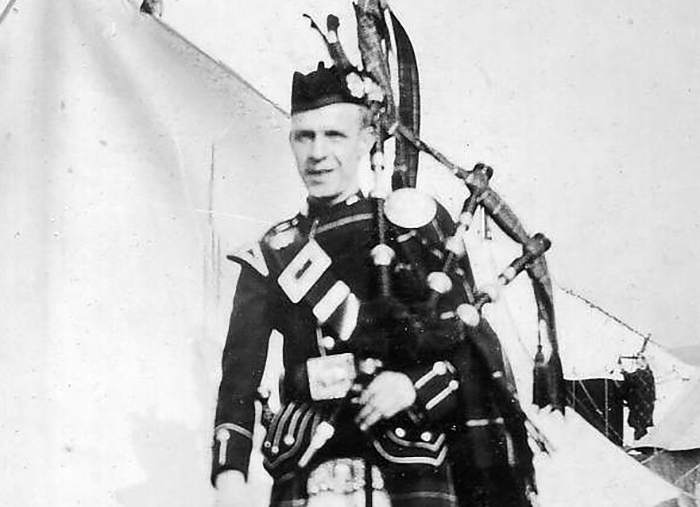
I am fortunate to have in my possession an army piper’s manuscript book. It is dated August 1941 and it belonged to Corporal W.E. Grieve, 6th Battalion of the King’s Own Scottish Borderers. It contains many competition tunes well beyond regimental basic requirements.
As I was searching for tunes relating to WW2, one four-parted 6/8 march, Crossing the Odon, by the well-known Willie Bryson (pictured), caught my eye immediately. The River Odon is in Normandy and gave its name to an important action featuring the 15th Scottish Division carried out in the aftermath of the initial D-Day landings.

By Andy Hunter
The latter division was given the task of moving out of the beach head and driving a way through the difficult Normandy countryside towards Caen. They were very successful in their mission and to this day there is a swathe of territorry named ‘The Scottish Corridor’ and it appears in current French maps as ‘Le Couloir écossais’.
By all accounts, the fighting was bloody and costly in lives. Once across the river, a magnificent opportunity presented itself. Taking the next ‘obstacle’, Hill 112, held out a good chance of advancing speedily on Caen.
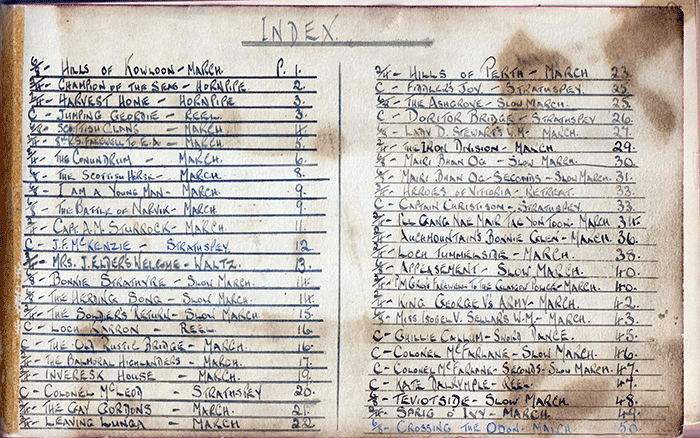
The Germans also recognised the strategic importance of this site and were prepared to defend with resolution. The Scots’ tails were up however, and they were confident that if they were sent reinforcements, they could pull it off.
Their request was surprisingly turned down by Montgomery’s H.Q. and they were ordered to retreat back over the Odon. It is at this point that French and British accounts of the action differ (at least in Wikipedia). A French contributor suggests that the Scots were furious and some even hinted at treason. A British account is much more discreet and confines itself to bare facts.
Given the pride of the Scots at having crossed the Odon successfully, and the fact that a prized strategic position seemed to be within their grasp, it is not surprising that a celebratory pipe march would have been composed in the best traditions of military piping.
Corporal Grieve’s pipe-major, Willie Bryson, seemingly rose to the occasion and a 6/8 march Crossing the Odon, appears in Grieve’s MSS book.
Why then, when the tune was eventually published in the Edcath Book 3 (edited by Bryson himself) was the title changed to Crossing the Oder? The River Oder is 100 kilometres from Berlin and a successful crossing by the Red Army heralded the final defeat of Nazi Germany.
Why would Bryson change his title unless he wished to express his admiration for the military prowess of the Soviet divisions? Or was this simply a printer’s error which was spotted too late to correct?
Another possibility is that Corporal Grieve changed the name himself! I am hoping that those who knew Willie Bryson, and may have heard him talk about this matter, will be able to provide an explanation.
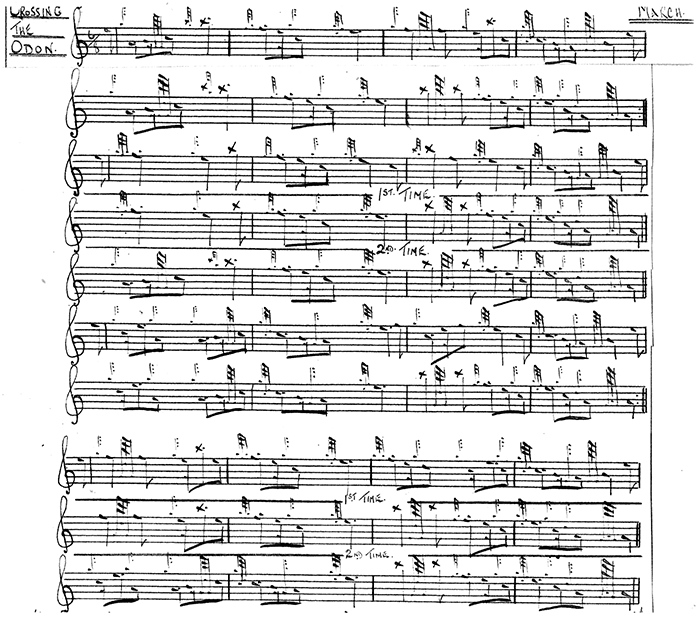
For those interested in the intensity of the feeling unleashed by the ordered withdrawal, the French account is fascinating. I translate:
‘…in the context of Operation Epsom, the Scots took very heavy losses but succeeded in breaking through enemy defences creating the ‘Scottish Salient’ on the southern slopes of Hill 112. They asked for reinforcements. In response Bernard Montgomery ordered his troops to withdraw and consolidate the front line.
‘After the war he maintained that they had been warned by the Enigma code breakers that the Germans were preparing a counter-attack. Some historians and veterans hold that the overall plan was flawed from the outset, and that High Command had failed to put adequate reinforcements in place.
‘Hill 112 became known as the ‘Verdun of Normandy’ by the French, by the Germans as ‘Calvary’ or simply as ‘Hell on Earth’ by the British. This battle is often ignored or ‘covered up’ by commentators. After the war, English historians refer to it simply as a ‘failure’ which involved several unsuccessful actions.‘
Hill 112 was never captured – it was simply abandoned by the Germans on the 4th of August 1944. When all is said and done, it is still a fine 6/8 march and deserves to be re-visited and as well as helping the tune be better known I hope someone can fill in the gaps in this story.
To conclude, here is a recording of the tune. It was made using an electronic pipe because I am still recovering from a bout of bronchitis and am experiencing some difficulty in blowing:












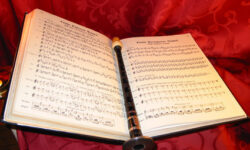
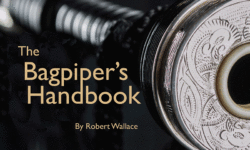
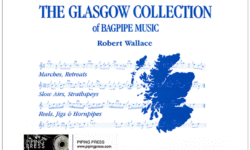








Please reach out to me. I have detailed info on KOSB and WW1 and WW2 for a current project. Email is below.
This is a nice tune , hopefully it may be heard more in the future.
Is there any other information about Cpl.W.E.Grieve.ie where did he hail from? What age was he etc.etc.